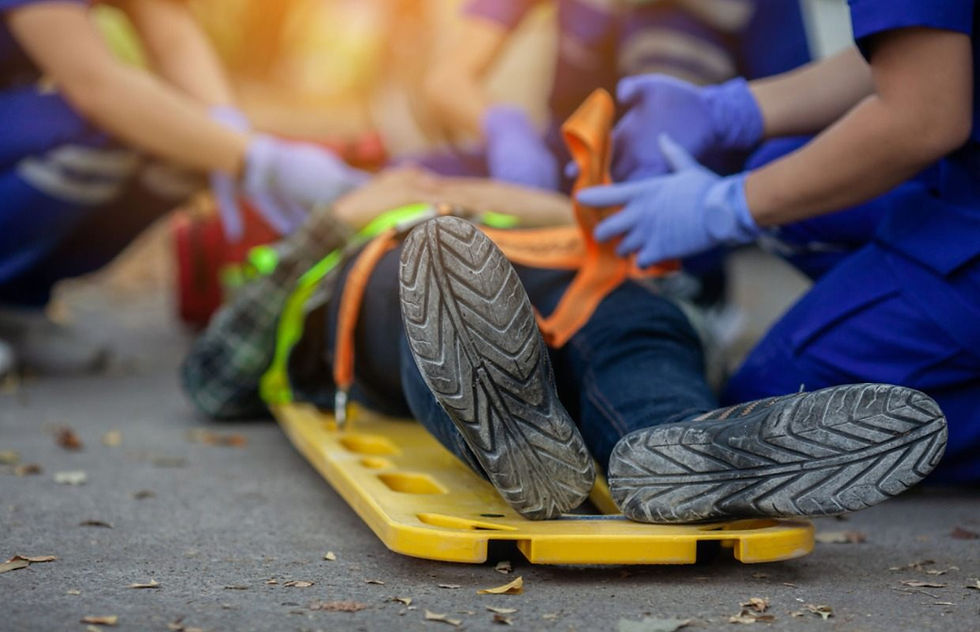Understanding the Legal Process: From Filing a Claim to Settlement
- Andrew Littlejohn Johnson

- Sep 22, 2023
- 4 min read

If you have been harmed by an individual or as a result of an organization's action or negligence, you may turn to the legal process to seek justice and hold the other party accountable. More importantly, you may undergo due process to seek the compensation you deserve.
However, what is a legal process, and what does it entail? How does a case move through the court system? This article guides you through the essential fundamentals of legal procedures.
What Is a Legal Process?
A legal process is a formalized procedure used to address and resolve legal disputes. It aims to provide victims with a sense of justice and gives accused individuals an opportunity to defend themselves. Civil or criminal proceedings are instituted against a party accused of wrongdoing to settle a legal dispute.
The Two Main Types of Legal Processes
There are two main types of legal processes: criminal and civil.
Criminal and civil cases both involve a party at fault and violations of people’s rights. However, the proceedings that settle them differ in structure.
Criminal cases deal with offenses like theft, fraud, or murder – acts considered a crime against the public good rather than an individual. As such, the government is the party bringing legal action against an individual for their offense.
Meanwhile, civil cases deal with disputes between two people, parties, or businesses. One party sues the other, and a judge or jury determines the defendant’s liability.
The Legal Procedure for Civil Cases
Every civil case differs from the next, and your personal injury lawyer will be able to best guide you through what to expect in your proceedings. With that said, here’s a general overview of how a civil case moves through the court:
Filing the Complaint
The legal process for civil cases always begins with the plaintiff filing a petition or complaint against another party. This document outlines the basis of the lawsuit and the compensation the plaintiff would like to receive for the harm caused by the other party (the defendant).
The defendant must be served with the necessary legal paperwork. Once served, they must respond to the complaint within 20 days.
Scheduling Order
Usually, after the defendant files a response, a judge will issue a “scheduling order.” This lays out critical deadlines, such as when documents must be filed and a date for the trial.
Mediation
This is an opportunity for both parties to negotiate a settlement or resolution with the help of a neutral third party before going to court. However, if both parties cannot reach an agreement, the case is heard in a trial.
Hearing
In general, trials are where both parties present their respective testimonies, evidence, and arguments. The judge then makes a ruling after hearing both sides.
Discovery
Discovery generally involves the exchange of relevant documents, evidence, and other information between parties before the trial. It takes three primary forms:
Depositions are interviews taken under oath to gather relevant information and get witnesses on the record.
Interrogatories are questions asked by one party to another. Like depositions, these questions must be answered truthfully and under oath to collect details about the case and get testimony on the record.
Document requests, as its name suggests, are documents related to the case requested by one party to the other.
Jury Selection
Some civil cases are tried before a jury, especially where monetary damages are involved.
If the case is tried before a jury, both parties are allowed to ask each potential juror questions to ensure they can make impartial decisions in the case. This process aims to eliminate potential jurors until the plaintiff’s and defendant’s attorney are satisfied they have an impartial jury.
Trial
This is the part of the legal process most people are familiar with.
To provide a brief overview, both sides in a trial present opening arguments, lay out the facts, cross-examine witnesses, and deliver their closing arguments.
Decision
Once the trial closes, the judge or jury then renders a decision based on all the facts and arguments presented by both parties. This decision includes:
If the defendant is found to be legally liable
If so, what the monetary damages or non-monetary equitable relief will be
Appeal
Both parties may “appeal” the decision to The Court of Appeals. However, this higher court will not hold new trials with witnesses or examine new evidence. In an appeal, the appellate court determines if the lower court made an error of procedure warranting its decision to be reversed.
Take On the Legal Battle With Littlejohn Law LLC
The rigorous legal process exists not only to bring justice to people who have harmed others with their actions or negligence but also to protect those who have been wronged.
Legal procedures can also be complex and confusing; you need a professional to walk you through the process and persistently advocate for you.
If you have been harmed by someone’s actions or negligence, Littlejohn Law LLC is here to help you navigate the legal process and obtain the compensation you deserve. We practice throughout South Carolina and handle various personal injury cases. Let us help you get started; contact us for a free consultation today.









Comments